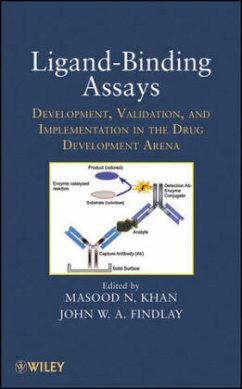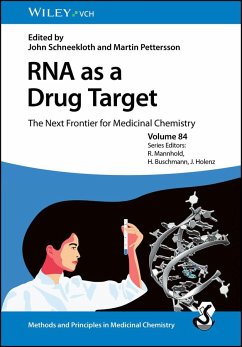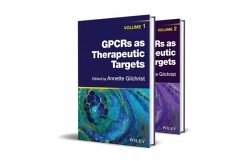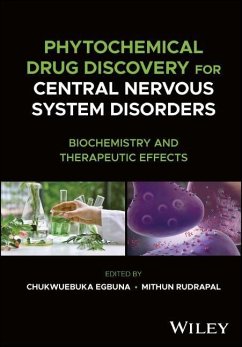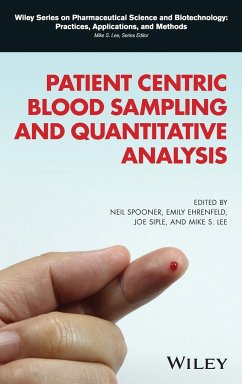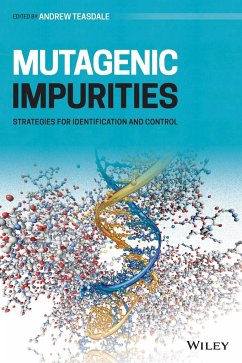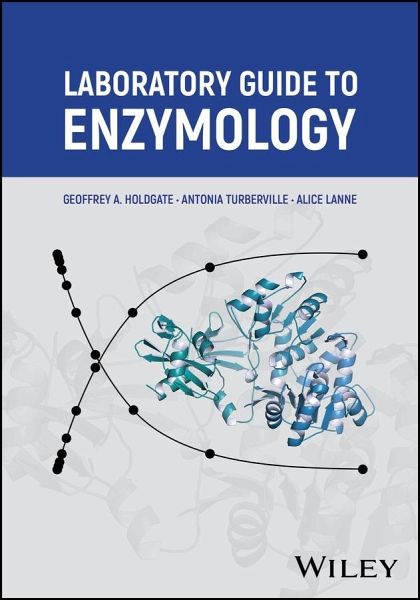
Laboratory Guide to Enzymology
Versandkostenfrei!
Versandfertig in über 4 Wochen
90,99 €
inkl. MwSt.
Weitere Ausgaben:

PAYBACK Punkte
45 °P sammeln!
LABORATORY GUIDE TO ENZYMOLOGYAn accessible guide to understanding the foundations of enzymology at its application in drug discoveryEnzymes are highly specialized proteins necessary for performing specific biochemical reactions essential for life in all organisms. In disease, the functioning of these enzymes can become altered and, therefore, enzymes represent a large class of key targets for drug discovery. In order to successfully target dysfunctional enzymes pharmaceutically, the unique mechanism of each enzyme must be understood through thorough and in-depth kinetic analysis. The topic of...
LABORATORY GUIDE TO ENZYMOLOGY
An accessible guide to understanding the foundations of enzymology at its application in drug discovery
Enzymes are highly specialized proteins necessary for performing specific biochemical reactions essential for life in all organisms. In disease, the functioning of these enzymes can become altered and, therefore, enzymes represent a large class of key targets for drug discovery. In order to successfully target dysfunctional enzymes pharmaceutically, the unique mechanism of each enzyme must be understood through thorough and in-depth kinetic analysis. The topic of enzymology can appear challenging due its interdisciplinary nature combining concepts from biology, chemistry, and mathematics.
Laboratory Guide to Enzymology brings together the theory of enzymology and associated lab-based work to offer a practical, accessible guide encompassing all three scientific disciplines. Beginning with a brief introduction to proteins andenzymes, the book slowly immerses the reader into the foundations of enzymology and how it can be used in drug discovery using modern methods of experimentation. The result is a detailed but highly readable volume detailing the basis of drug discovery research.
Laboratory Guide to Enzymology readers will also find:
_ Descriptions of key concepts in enzymology
_ Examples of drugs targeting different enzymes via different mechanisms
_ Detailed discussion about many areas of enzymology such as binding and steady-state kinetics, assay development, and enzyme inhibition and activation
Laboratory Guide to Enzymology is ideal for all pharmaceutical and biomedical researchers working in enzymology and assay development, as well as advanced students in the biochemical or biomedical sciences looking to develop a working knowledge of this field of research.
An accessible guide to understanding the foundations of enzymology at its application in drug discovery
Enzymes are highly specialized proteins necessary for performing specific biochemical reactions essential for life in all organisms. In disease, the functioning of these enzymes can become altered and, therefore, enzymes represent a large class of key targets for drug discovery. In order to successfully target dysfunctional enzymes pharmaceutically, the unique mechanism of each enzyme must be understood through thorough and in-depth kinetic analysis. The topic of enzymology can appear challenging due its interdisciplinary nature combining concepts from biology, chemistry, and mathematics.
Laboratory Guide to Enzymology brings together the theory of enzymology and associated lab-based work to offer a practical, accessible guide encompassing all three scientific disciplines. Beginning with a brief introduction to proteins andenzymes, the book slowly immerses the reader into the foundations of enzymology and how it can be used in drug discovery using modern methods of experimentation. The result is a detailed but highly readable volume detailing the basis of drug discovery research.
Laboratory Guide to Enzymology readers will also find:
_ Descriptions of key concepts in enzymology
_ Examples of drugs targeting different enzymes via different mechanisms
_ Detailed discussion about many areas of enzymology such as binding and steady-state kinetics, assay development, and enzyme inhibition and activation
Laboratory Guide to Enzymology is ideal for all pharmaceutical and biomedical researchers working in enzymology and assay development, as well as advanced students in the biochemical or biomedical sciences looking to develop a working knowledge of this field of research.




